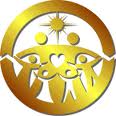
The Divine Principle from a Unification Thought perspective
Picking up from where we left off in November, Being a Temple of God, we can continue examining the idea of “perfection” that’s mentioned in the First Great Blessing. The paragraph starts:
“The key to God’s first blessing is the perfection of individual character. …to perfect his character, he must form a four position foundation within himself whereby his mind and body become one through give and take action with God as their center…” • Exposition of the Divine Principle, p. 34
This reference to mind and body becoming one reminded me of another part of Unification Thought which deals with character and virtue. Practically speaking, it describes what a person who fulfills the First Blessing might “look” like in terms of character. This idea first appears in the Unification Thought theory of Axiology. (In the Mirriam-Webster dictionary, axiology is defined as “the study of the nature, types, and criteria of values, and of value judgments especially in ethics”.) The Unification Thought theory of axiology associates certain virtues with a person’s individual character. It says:
“In human society… each person engages in mutual relationships with other people while maintaining his or her own character. Individual values include purity, honesty, righteousness, temperance, courage, wisdom, self-control, endurance, independence, self-help, autonomy, fairness, diligence, innocence, and so on. All of these are values for an individual’s self-cultivation.” • New Essentials of Unification Thought, p. 228-229
However, while the common definition of axiology mentioned in the dictionary refers to “ethics”, Unification Thought sees ethics as referring to the relationships between people:
“Ethics is the norm of human behavior to be observed in the family by its members. In other words, it is the norm of human behavior in family life… ethics is the norm for …the perfection of the family, which is the second blessing.
On the other hand, morality is the norm of human behavior to be observed as an individual. In other words, it is the norm of human behavior in … the individual’s inner life… Therefore, morality is the norm …for the perfection of one’s individuality, which is the first blessing. Consequently, ethics is an objective norm, whereas morality is a subjective norm.” • New Essentials of Unification Thought, p. 283
 So the group of virtues mentioned above are more specifically moral virtues; that is, they are the ones that relate to the perfection of my individual, inner character. Whereas there are ethical virtues which relates to my relationships with others. We will look at those when we get to the Second Great Blessing and the relationships between people.
So the group of virtues mentioned above are more specifically moral virtues; that is, they are the ones that relate to the perfection of my individual, inner character. Whereas there are ethical virtues which relates to my relationships with others. We will look at those when we get to the Second Great Blessing and the relationships between people.
For now, it’s sufficient to point out that moral virtues are considered “subjective” norms. That means that they are initiative, a beginning point. After all, in order to have a virtuous family, the individual members of that family must be virtuous. More simply expressed, we can say that moral individuals make an ethical family possible.
The theory of Ethics affirms this and recaps the virtues first introduced in the Axiology chapter:
“…morality is the norm of behavior for an individual to observe… internally within a human being, harmonious give and receive action must be made between the spirit mind and the physical mind …the give and receive action between the spirit mind and the physical mind must be centered on God’s Heart and the purpose of creation. Moral virtues include such virtues as purity, honesty, righteousness, temperance, courage, wisdom, self-control, endurance, independence, self-help, fairness, diligence, innocence, and so on.” • New Essentials of Unification Thought, p. 285
The Divine Principle describes two parts of our mind: that which is concerned with physical needs and that which is concerned with spiritual ones. That’s what’s being referred to in the quote above as the “spirit mind” and the “physical mind”. We’re concerned here with the spiritual mind — that’s the one that moral virtues are related to.
The point then is that, as you or I strive tofulfill the First Great Blessing, as our spirit approaches God and guides our thought and action, we grow in moral virtue. We become purer, more honest, righteous and temperate; we grow more courageous, wise, self-controlled, enduring, independent, fair, diligent and innocent.
If you stop and think about some of the most admirable people you know, I’d bet that you’ll be able to identify at least of few of these virtues in their characters. The more of these virtues they have, and the stronger these virtues are in their character, the more they stand out in a crowd.
Try this: imagine a young man or a young woman who is honest, courageous, wise, enduring, independent, fair and diligent. It sound to me at least like a hero or heroine in an adventure movie! And if you take such a young woman or young man and tack purity and innocence on top of everything else, I think you’ll end up with an extremely attractive box office draw.
To restate the point, moral virtue is the foundation of ethical relationships. And a person who’s serious about progressing towards the First Great Blessing should pay serious attention to developing their moral virtue. If they do, they become increasingly beautiful, in the deepest sense of the word. ❦












